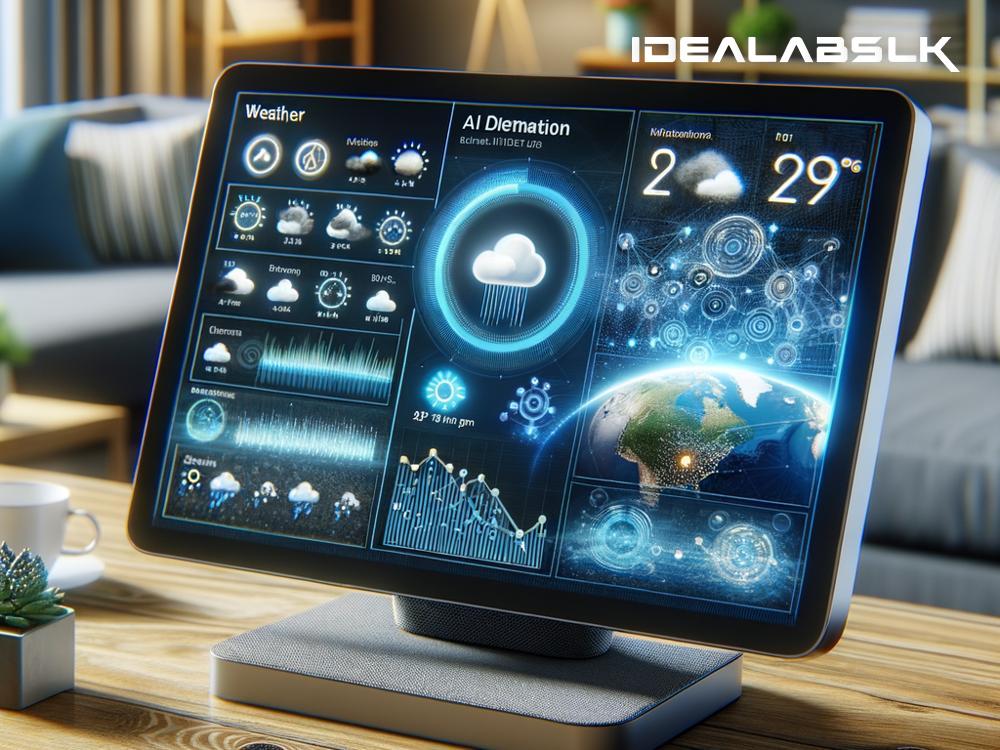How AI Predicts Weather Patterns on Smart Home Displays: Making Weather Forecasts Smarter and More Accurate
In an era where technology knows no bounds, our homes have become smarter than ever before. Beyond controlling lights and playing music on command, smart home devices are now our personal meteorologists. Thanks to advancements in Artificial Intelligence (AI), predicting weather patterns and displaying them on smart home screens have become incredibly accurate, simple, and interactive. But how does this technology work, and what makes it so reliable?
The Basics of Weather Forecasting through AI
At its core, AI in weather prediction involves machine learning and deep learning – both subsets of AI that process massive datasets to identify patterns and make predictions. Unlike traditional weather forecasting methods that heavily rely on human analysis, AI sifts through historical and real-time weather data from various sources like satellites, weather stations, and sensors. It then uses sophisticated algorithms to predict future weather conditions more quickly and accurately.
Learning from the Past to Predict the Future
One of the marvels of AI in weather forecasting is its ability to learn from historical data. By analyzing years' worth of weather information, AI models can detect patterns and trends that are invisible to the human eye. This learning process is ongoing; the more data fed into these models, the smarter they become. When it comes to displaying predictions on smart home devices, this means that over time, the forecasts become increasingly reliable, providing homeowners with vital information to plan their days.
Speed and Precision: The AI Advantage
Accuracy and speed are where AI truly shines in weather prediction. Traditional forecasting methods can take hours to produce results, which might not always be as accurate due to the fast-changing nature of weather. On the other hand, AI can update forecasts in real-time, taking into account the latest changes in weather conditions. This means that when you glance at your smart home display, you’re getting the most current and precise forecast available, whether it’s predicting a sunny day or an unexpected rainstorm.
Personalized Weather Reports on Your Smart Home Display
What makes AI-driven weather forecasts even more appealing is the personalized experience they offer. Smart home devices powered by AI can tailor weather reports based on your location and even learn your routine to provide forecasts relevant to your daily activities. Planning a jog in the morning? Your smart home display can advise you on the best time to go based on weather conditions. This personalized approach not only enhances convenience but also ensures that you’re always prepared for what’s ahead.
Beyond Weather: Environmental Insights
Furthermore, AI technology not just stops at predicting weather patterns. With environmental concerns on the rise, many smart home devices now offer insights into air quality, pollen count, and even UV index levels. This comprehensive approach not only keeps you informed about the weather but also helps you make healthier decisions for you and your family, turning your home into a hub of environmental awareness.
The Future Is Bright (and Accurate)
As AI technology continues to evolve, we can expect even more advancements in how weather forecasts are produced and delivered. Emerging technologies like 5G will enable faster data transmission, making real-time updates even quicker. Moreover, with the integration of AI in more smart home devices, accessing weather information will become even more seamless, ensuring that no matter where you are in your home, you're never too far away from a personalized weather update.
Conclusion: Smarter Homes, Smarter Decisions
The integration of AI in predicting weather patterns on smart home displays exemplifies how technology not only makes our lives more convenient but also better informed. Gone are the days of being caught off guard by a sudden rainstorm or planning your day around inaccurate forecasts. With AI, our homes not only become smarter; they help us make smarter decisions when it comes to dealing with the unpredictability of weather. As we continue to embrace these technological advancements, one thing is clear – the future of home weather forecasting looks bright, accurate, and incredibly smart.

